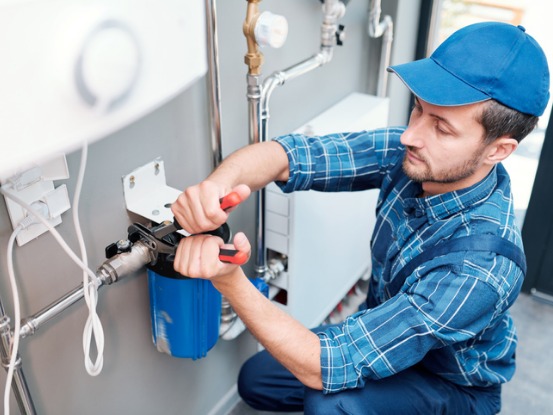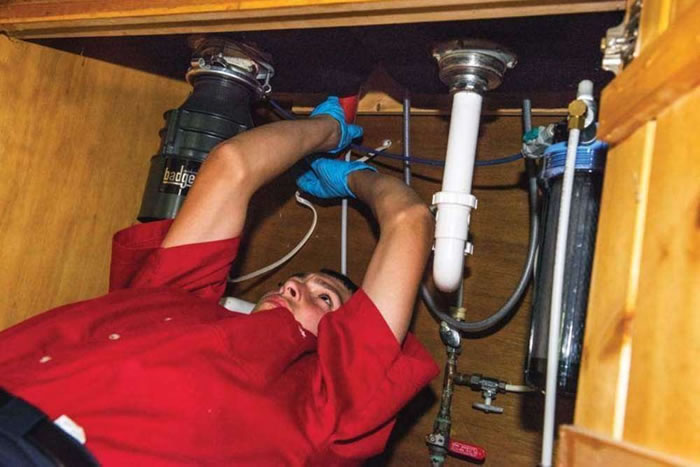The article author is making several good pointers on Dealing with Low Water Pressure in Your Home in general in this content below.

Low water pressure in your house can be an aggravating trouble, influencing everything from bathing to washing dishes. If you're experiencing weak water circulation, there are numerous feasible reasons and remedies to discover. In this guide, we'll talk about common factors for low water pressure and functional actions to attend to the concern properly.
Intro to Low Water Pressure
Low water stress takes place when the circulation of water from your taps, showers, and other components is weak than normal. This can make day-to-day tasks extra difficult and less efficient. Understanding the reasons for low water pressure is vital to locating the right service.
Usual Reasons For Low Water Stress
Faulty Stress Regulatory Authorities
Pressure regulators are responsible for preserving consistent water pressure in your home. If they malfunction, it can cause low water pressure or irregular circulation throughout the house.
Community Supply Of Water Issues
Sometimes, the issue exists outside your home. Municipal water supply concerns, such as main line leaks or maintenance work, can temporarily reduce water stress in your area.
Pipe Obstructions
In time, pipes can end up being clogged with mineral deposits, debris, or particles, restricting the flow of water. This is a typical problem in older homes with galvanized steel pipes.
Deterioration
Deterioration within pipelines can lead to leaks and decreased water stress. Corrosion accumulation can restrict water flow, especially in maturing plumbing systems.
Just How to Identify Low Tide Pressure
Examining Pipelines
Examine visible pipelines for indications of leaks, corrosion, or obstructions. Focus on any type of uncommon audios, such as knocking or rattling pipes, which could suggest issues within the plumbing system.
Consulting with a Plumber
If you're not able to determine the reason for low tide stress, consider employing a professional plumber to carry out a comprehensive evaluation. They can determine underlying issues and advise appropriate services.
Examining Faucets and Fixtures
Begin by checking the water pressure at different taps and components throughout your home. If the problem is isolated to specific locations, it might indicate local troubles.
DIY Solutions to Deal With Low Water Pressure
Flushing Water Heater
Debris build-up in the water heater can restrict flow and minimize performance. Flushing the tank regularly assists eliminate debris and preserve optimum efficiency.
Examining Stress Regulatory Authority
Make certain that the pressure regulatory authority is functioning appropriately. Adjusting or changing the regulatory authority can help recover proper water pressure throughout your home.
Cleansing Aerators and Showerheads
Mineral deposits can build up in aerators and showerheads, lowering water flow. Eliminate and clean up these components on a regular basis to improve water stress.
Cleaning Clogs in Pipes
For small blockages, try using a plumbing serpent or chemical drain cleaner to clear obstructions in pipelines. Be cautious when making use of chemicals and adhere to security standards.
When to Call an Expert Plumber
If do it yourself efforts fall short to settle the problem or if you believe considerable plumbing troubles, it's best to seek help from a licensed plumber. They have the experience and tools to attend to intricate problems securely and efficiently.
Safety Nets to Keep Water Stress
Installing a Stress Booster
Consider installing a stress booster pump to boost water stress in locations with consistently low circulation. This can be specifically helpful for multi-story homes or residential or commercial properties with high-demand components.
Surveillance Water Usage
Bear in mind water usage behaviors and stay clear of ill-using the plumbing system. Easy changes, such as incredible showers and washing tons, can help keep sufficient water pressure.
Regular Maintenance
Arrange regular maintenance for your plumbing system to prevent problems such as deterioration, leaks, and blockages. Resolving small problems early can aid prevent more considerable repair services in the future.
Verdict
Taking care of low water pressure can be irritating, but recognizing the underlying causes and executing ideal solutions can recover ideal flow throughout your home. Whether it's cleansing aerators, inspecting pipes, or talking to a plumber, taking aggressive steps can ensure a stable supply of water for your day-to-day requirements.
FOUR WAYS TO FIX LOW WATER PRESSURE NOW
Turning on a shower or faucet only to find the water comes out in a sad, slow drizzle is never a good feeling. How exactly are you supposed to wash a pan or take a quick shower when it takes 10 minutes just to rinse off a little soap? The good news is that when your water pressure is bad, there's always a cause: typically one that can be easily fixed. Here are some of the most common causes of low pressure and what you can do to fix the issue:
DEBRIS AND MINERAL DEPOSIT BUILDUPS
If you notice low water pressure from just one or two of the fixtures in your house, the problem likely has to do with debris buildup. Water is full of minerals and other debris, all of which can accumulate in your pipes and on your fixtures. This can cause a blockage that affects how much water flows through. To fix this, try filling a small plastic bag with white vinegar, and use a rubber band to hang it around your showerhead or faucet. Let the head of the fixture soak for a few hours, and the vinegar should loosen the deposits.
WATER LEAKS
Leaks are another common cause of low water pressure. If water is flowing out of your plumbing through a hole or crack before it can reach your fixture, the pressure coming out of the faucet or showerhead will be lower. A plumbing professional is your best bet for finding and repairing a leak in your water supply pipes.
Leaks are another common cause of low water pressure. If water is flowing out of your plumbing through a hole or crack before it can reach your fixture, the pressure coming out of the faucet or showerhead will be lower. A plumbing professional is your best bet for finding and repairing a leak in your water supply pipes.
A VALVE ISSUE
If you have low water pressure throughout your home, check your main shut-off valve to make sure it's completely open. You may also want to see if there's a pressure-reducing valve installed. If there is, have a plumber help you adjust the settings to get the pressure you're looking for.
OTHERS USING WATER
Believe it or not, your low water pressure could be caused by your neighbors. If you notice low pressure at certain times of day, it may be because you and the people living next to you have similar schedules - when everyone is showering at the same time, the pressure will be lower in every home. Low pressure throughout the neighborhood may also be caused by an issue with your municipal water supply. If that's the case, call the supplier to see if they're working on the issue.
https://www.rotorooter.com/blog/water-leaking/low-water-pressure-fixes/

I'm very interested by 9 Reasons for Low Water Pressure in Your House and I am praying you enjoyed reading my article. Loved our entry? Please share it. Let others find it. I cherish your readership.
Website